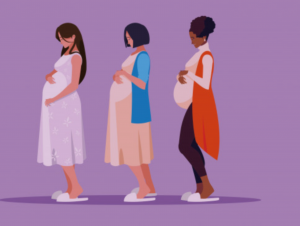
Since the first case of COVID-19 was diagnosed in December 2019, it has swept across the globe resulting in unprecedented public health action and changes to our medical infrastructure, including the use of widespread physical distancing measures to decrease transmission.
This has dramatically changed national behaviour and upended our usual day-to-day functioning. While these changes were necessary to decrease transmission of COVID-19, they will have important consequences for the well-being of the population.
The women’s health research community is currently investigating the impact of the pandemic on pregnant women, given the complexity of care they require.
A national survey called “Pregnant during the pandemic”, led by University of Calgary (UofC) researchers, Drs Catherine Lebel, Gerry Giesbrecht, and Lianne Tomfohr-Madsen have heard from thousands of Canadian women to date — including hundreds from British Columbia. The survey is capturing experiences of pregnant women and how they are coping during this time.
A collaboration between these Uof C researchers and University of British Columbia researchers Drs Gillian Hanley and Tim Oberlander are asking BC respondents to link their answers with population-based administrative datasets in BC. This BC-based study will allow for a more in-depth study of the long-term outcomes for mothers and their babies resulting from increased levels of stress, anxiety and depression, the changes to the medical care and the increased isolation pregnant women experienced during the pandemic.
This research has the potential to inform how we intervene to help pregnant women in future pandemics, and will dramatically increase our understanding around the role that stress, anxiety and depression during pregnancy play in long-term maternal mental health, and infant and child development.
We need your help!
If you or someone you know is pregnant, please share this article, the recruitment poster, social media graphic, or complete the survey here.
Stay up to date with the Oberlander Lab on Twitter.

